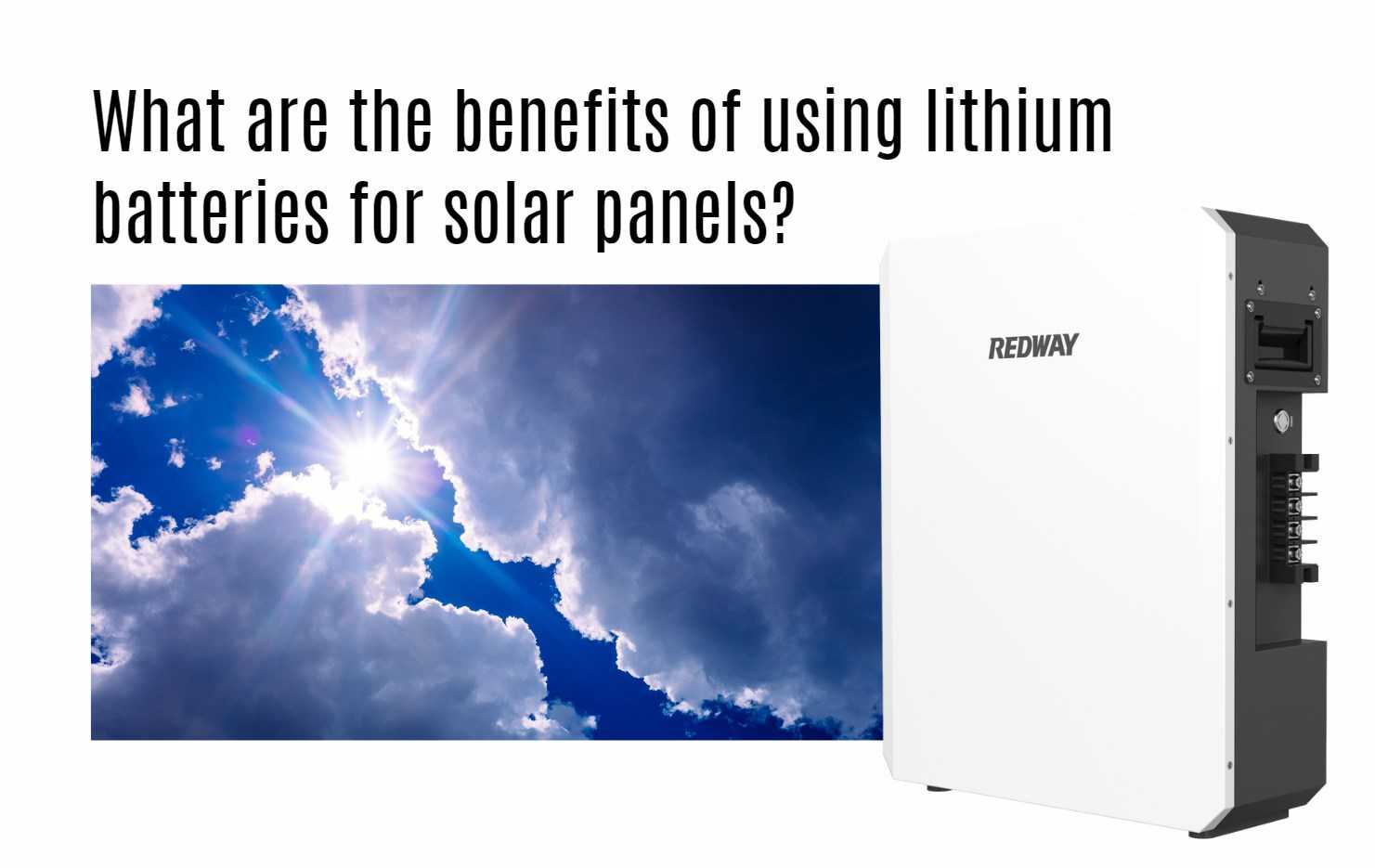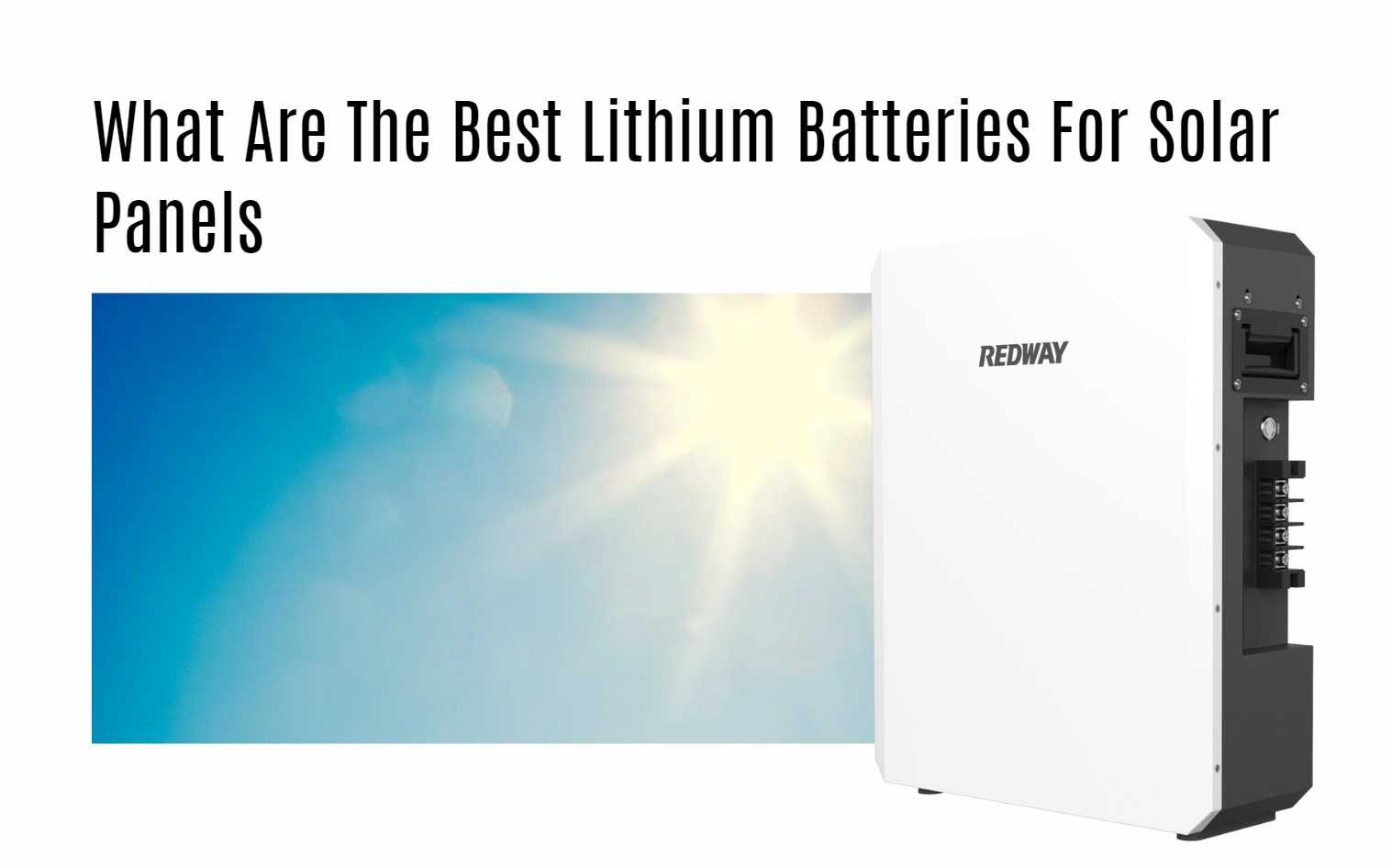As we shift towards more sustainable energy sources, solar panels have become increasingly popular. They are a great way to reduce your carbon footprint and save on electricity bills. However, choosing the right battery for your solar panel system can be overwhelming with so many options available in the market. Lithium batteries are an excellent choice due to their high energy density and longer lifespan compared to traditional lead-acid batteries. In this blog post, we will delve deeper into what lithium batteries are and explore the best options for your solar panel system. So sit back, relax, and let’s dive into this exciting topic!
What are lithium batteries?
Lithium batteries are rechargeable batteries that use lithium as the cathode and an electrolyte to carry ions between the electrodes. They have become increasingly popular in recent years due to their high energy density, long lifespan, and low maintenance requirements.
These batteries come in a variety of shapes and sizes, including cylindrical or prismatic cells. The most common type used for solar panels is the Lithium-Ion (Li-ion) battery due to its higher power density.
Lithium batteries are also known for their fast charging capabilities, making them an ideal choice for solar panel systems that require quick recharging times. Additionally, they have a longer cycle life compared to traditional lead-acid batteries, which means they can be charged and discharged more frequently without losing capacity.
However, it’s important to note that lithium batteries can be more expensive than other types of rechargeable batteries but offer better performance over time. As with any battery technology, it’s essential to choose high-quality brands from reputable manufacturers when purchasing your lithium battery for your solar panel system.
What are solar panels?
Solar panels, also known as photovoltaic (PV) panels, are devices that convert sunlight into electricity. They are made up of small units called solar cells which capture the sun’s energy and turn it into direct current (DC) electricity.
These solar cells consist of layers of silicon wafers and other materials such as boron and phosphorus. When sunlight hits these layers, electrons within the materials become excited and create an electric field that drives them to flow in a particular direction.
The DC electricity generated by the solar cells is then converted into alternating current (AC) through an inverter so that it can be used to power homes or businesses. Solar panel systems come in different sizes depending on their intended use – from small home installations to large commercial arrays.
One great benefit of using solar panels is that they provide a renewable source of energy since sunlight is abundant and free. Additionally, solar panels produce no emissions during operation, making them environmentally friendly compared to traditional fossil fuel-based sources.
Solar panels have become increasingly popular over recent years due to advancements in technology which have made them more efficient at converting sunlight into usable power for homes and businesses alike.
What are the benefits of using lithium batteries for solar panels?
Lithium batteries are the preferred choice for solar panels due to their numerous benefits. Firstly, lithium batteries have a high energy density which means they can store more power in a smaller size and weight. This makes them ideal for off-grid or mobile solar panel systems where space is limited.
Secondly, lithium batteries have a longer lifespan compared to other battery types, with some models lasting up to 10 years or more. This reduces the need for frequent replacements and ultimately saves you money in the long run.
Thirdly, lithium batteries are highly efficient at charging and discharging power which means less energy waste during storage and use. They also have low self-discharge rates which means they can hold their charge for longer periods of time without needing frequent recharges.
Lithium batteries are generally safer compared to other battery types as they do not contain toxic chemicals such as lead or acid. They also perform well in extreme temperatures making them suitable for outdoor use.
Using lithium batteries with your solar panel system offers many advantages including high energy density, long lifespan, efficiency and safety.

What are the best lithium batteries for solar panels?
When it comes to choosing the best lithium batteries for your solar panel system, there are a variety of factors to consider. One important consideration is the battery’s capacity, which refers to how much energy it can store. You’ll want to choose a battery with enough capacity to meet your specific energy needs.
Another factor is the battery’s cycle life, or how many times it can be charged and discharged before its performance begins to degrade. A higher cycle life means that the battery will last longer and require less maintenance over time.
It’s also important to consider safety features such as built-in protection against overcharging or overheating. Look for batteries that have been certified by recognized safety organizations like UL or CE.
When it comes to specific brands and models, some popular options include Tesla Powerwall, LG Chem RESU, and Enphase AC Battery. However, it’s always best to do your own research and consult with an expert in solar technology before making a final decision on which lithium battery is right for you.
How to choose the right lithium battery for your solar panel system
When it comes to choosing the right lithium battery for your solar panel system, there are a few factors to consider. Firstly, you need to determine the capacity of the battery that is suitable for your energy needs. This will depend on how much electricity you use and how long you need to power your devices.
Another important factor is the voltage of the battery. It should match or exceed the voltage output of your solar panels in order to maximize efficiency. You also want to ensure that you choose a high-quality lithium battery with good temperature control and safety features.
Consider whether you want a modular or integrated battery system. Modular systems allow for easy expansion while integrated systems offer sleeker designs but may be more difficult to upgrade later on.
Don’t forget about warranty and customer support when selecting a lithium battery for your solar panel system. A longer warranty period and responsive customer service can save you time and money in case any issues arise down the line.
Taking these factors into consideration will help ensure that you choose a reliable and efficient lithium battery that meets all of your energy needs for years to come.
Conclusion
After going through the various aspects of lithium batteries for solar panels, it is safe to say that they are a reliable and efficient option. They offer several advantages over traditional lead-acid batteries, including longer lifespan, higher energy density, and faster charging times.
When choosing the best lithium battery for your solar panel system, consider factors such as capacity, voltage compatibility with your solar panels and inverter, temperature requirements and overall cost.
Investing in high-quality lithium batteries can significantly improve the performance of your solar panel system while helping you save money on energy bills. With proper maintenance and care, these batteries can last for many years while providing consistent power supply to meet your needs.
When it comes to powering up your home or business using renewable sources like solar energy; investing in the right type of battery makes all the difference. Lithium batteries have proven themselves as one of the most popular choices among homeowners looking to optimize their solar panel systems’ performance. By considering all relevant factors discussed above before making any purchase decision will ensure that you get exactly what you need out of this investment – long-lasting power supply backed by low-maintenance costs!



